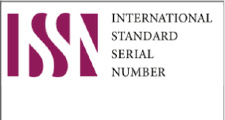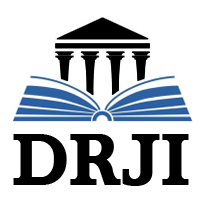The Moral Ethos of Islam and the West: A Comparative Study
Keywords:
Islamic Ethics, Western Morality, Comparative Study, Ethical Frameworks, Values, Cultural Perspectives.Abstract
The comparative study of Islamic ethics and Western morality offers a nuanced exploration into the philosophical underpinnings, cultural contexts, and ethical frameworks that shape human behavior and societal norms. This paper delves into the fundamental principles of Islamic ethics rooted in the Quran and Hadith literature, juxtaposing them with the diverse moral philosophies prevalent in Western societies, including but not limited to utilitarianism, deontology, and virtue ethics. The analysis encompasses various dimensions, including the conception of the good life, the role of reason and revelation in moral decision-making, the notion of moral agency, and the understanding of moral virtues and vices. It examines how Islamic ethics emphasize the interconnectedness of individual conduct with communal well-being, as well as the importance of cultivating moral character through adherence to divine guidance and prophetic traditions. This paper presents a comparative study of the moral ethos inherent within Islam and Western societies. Utilizing a multidisciplinary approach, it examines the fundamental principles, values, and ethical frameworks that underpin the moral systems of both Islam and the West. Through an exploration of historical, cultural, philosophical, and religious perspectives, this study seeks to highlight the similarities, differences, and intersections between these two distinct moral traditions. Drawing from primary sources and scholarly literature, the analysis delves into key themes such as justice, compassion, human rights, and social responsibility within the contexts of Islamic teachings and Western philosophical thought. Furthermore, it evaluates how these moral principles manifest in contemporary socio-political landscapes, addressing issues such as governance, gender equality, and interfaith relations. The study also considers the impact of globalization, modernity, and cultural exchange on the evolution of moral values within both Islamic and Western societies. By critically assessing the strengths and weaknesses of each tradition, it aims to foster greater understanding and dialogue between adherents of Islam and Western cultures. (Rawls, 1971)
Downloads
References
Al-Attas, S. M. (1980). Islam and Secularism.
Al-Ghazali, A. H. (2013). The Alchemy of Happiness. Islamic Book Trust.
Aristotle. (1985). Nicomachean Ethics. Hackett Publishing.
Fakhry, M. (2004). Ethical Theories in Islam.
Ibn Qudamah, A. (2010). The Book of Jihad. International Islamic Publishing House.
Ibn Taymiyyah, A. (2000). The Relief from Distress. Dar-us-Salam.
Kant, I. (1785). Groundwork of the Metaphysics of Morals. Cambridge University Press.
MacIntyre, A. (1984). After Virtue. University of Notre Dame Press.
Mill, J. S. (1863). Utilitarianism. Parker, Son, and Bourn.
Nasr, S. H. (2003). The Heart of Islam: Enduring Values for Humanity. HarperOne.
Ramadan, T. (2009). Radical Reform: Islamic Ethics and Liberation.
Rawls, J. (1971). A Theory of Justice. Harvard University Press.
Singer, P. (1975). Animal Liberation. HarperCollins.






















